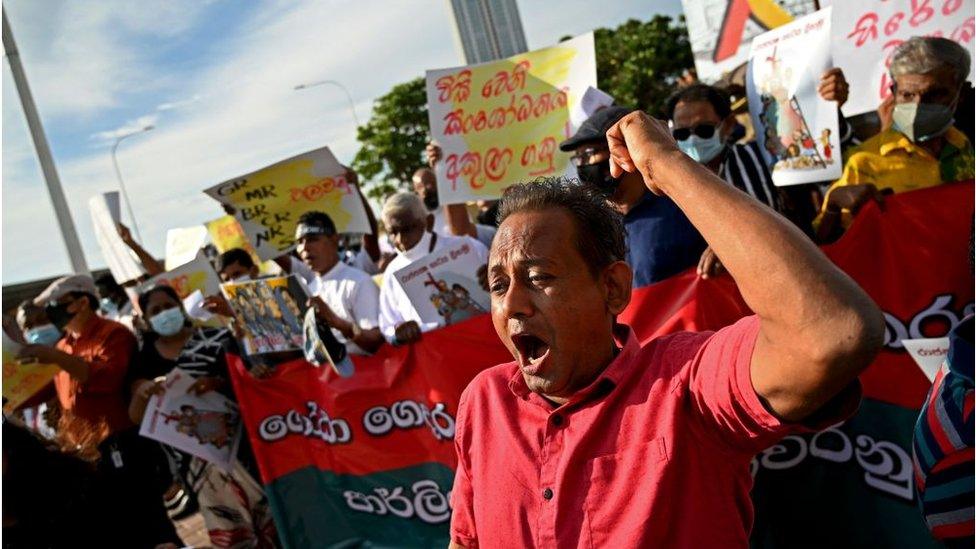Sri Lanka: President Rajapaksa resigns after fleeing country
- Published
- comments
What's happening in Sri Lanka?
Sri Lankan President Gotabaya Rajapaksa has resigned, following months of protests from people in the country.
President Rajapaksa had fled Sri Lanka after crowds stormed his home on Saturday, first travelling to the Maldives before going to Singapore.
He is believed to have wanted to leave Sri Lanka before stepping down in order to avoid the possibility of arrest under a new government.
Demonstrators in the capital city Colombo danced with delight when they heard the news of the president's resignation.
The prime minister, Ranil Wickremesinghe, has now been appointed acting President.
He has declared a national state of emergency and a curfew to stop the protests.
The streets of Colombo were calmer as anti-government demonstrators began leaving some of the official buildings they had occupied.
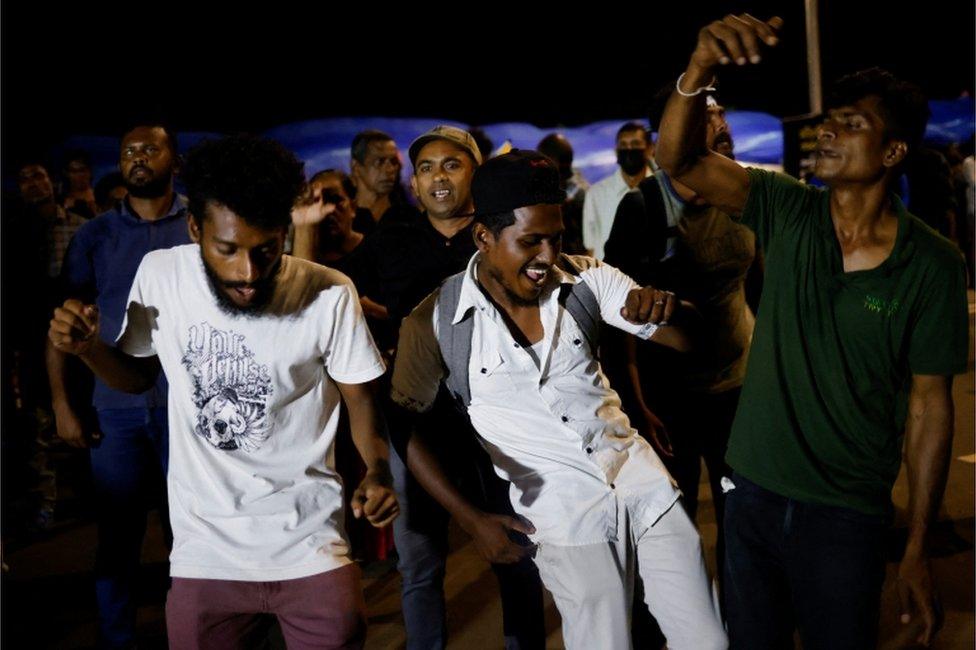
Protesters in Colombo celebrated at news of the resignation
Sri Lanka is currently facing the biggest economic crisis it has ever seen, since it gained independence from the UK in 1948.
People have struggled to buy things like food, medicine and fuel because of shortages. Many of these basic items have become too expensive, meaning people aren't able to afford them.
Lots of Sri Lankan people have been taking to the streets to protest since early April, because they're angry about the state of their country, and many blame President Rajapaksa for the economic problems.
Prime Minister Ranil Wickremesinghe also announced that he would be stepping down, once a deal was reached to form an all-party government.
Why have the president and prime minister quit?
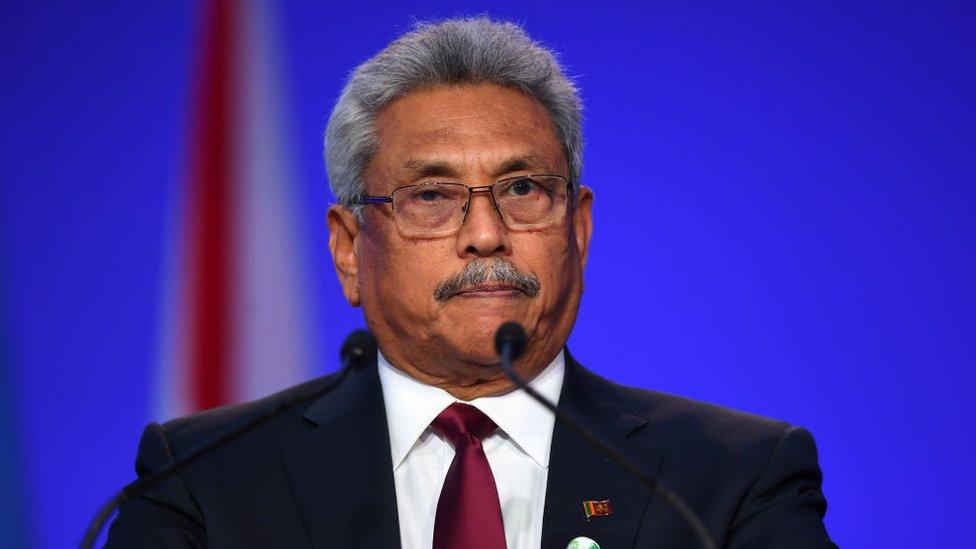
Mr Rajapaksa says he will step down as president
The Sri Lankan parliament Speaker has said the president would resign on Wednesday, however, under Sri Lanka's constitution (a set of rules that say how the country should be run), his resignation can only be accepted when he resigns by letter to the Speaker - which hasn't happened yet.
The president left the country and has gone to the Maldives but is still expected to resign on Wednesday.
Whilst President Rajapaksa is leader, he has immunity from any legal action taken against him, so its thought he wanted to flee to another country before he stepped down as president to avoid arrest.
Sri Lanka's parliament will elect a new president on 20 July.
Last week, tens of thousands of protestors stormed the homes of the president, and prime minister after months of protests feeling frustrated over their handling of the economy.
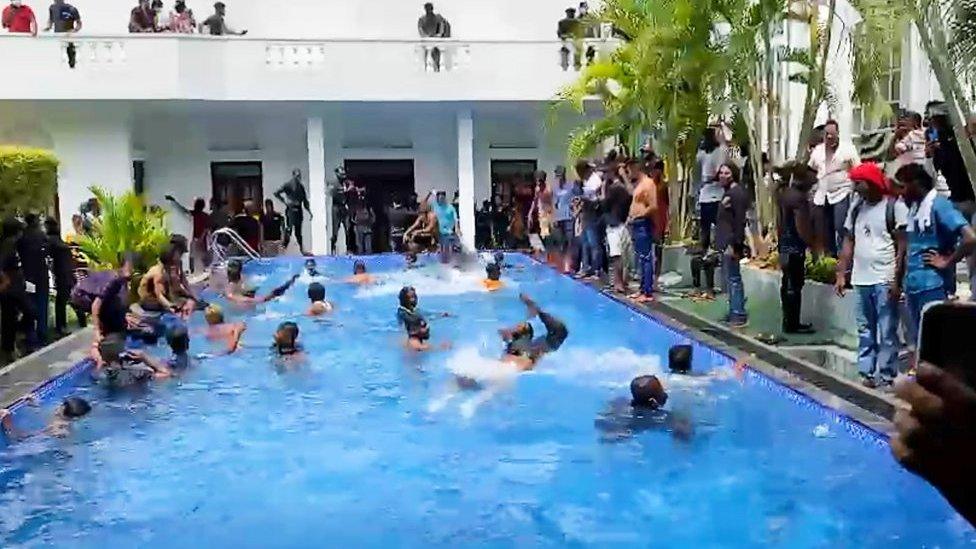
Protesters in the Sri Lankan president's pool
Some protestors also set fire to Prime Minister Wickremesinghe's house. Neither man was in the buildings when they were stormed.
The protestors have said they will not leave the houses until both men officially quit.
Why are people protesting in Sri Lanka?
Mass protests started in early April across the country because the cost of living has become unaffordable.
The country's inflation rate hit a whopping 55% in June, and millions of people are struggling to make a living.
People are paying up to four times more for food compared with a year earlier, which has led to some people having to cut down not only on what food they buy, but also the number of meals they eat every day.
Many people say they have not eaten fish or meat for months because it is too expensive. The UN has warned there will be a malnutrition and a humanitarian crisis in the country.
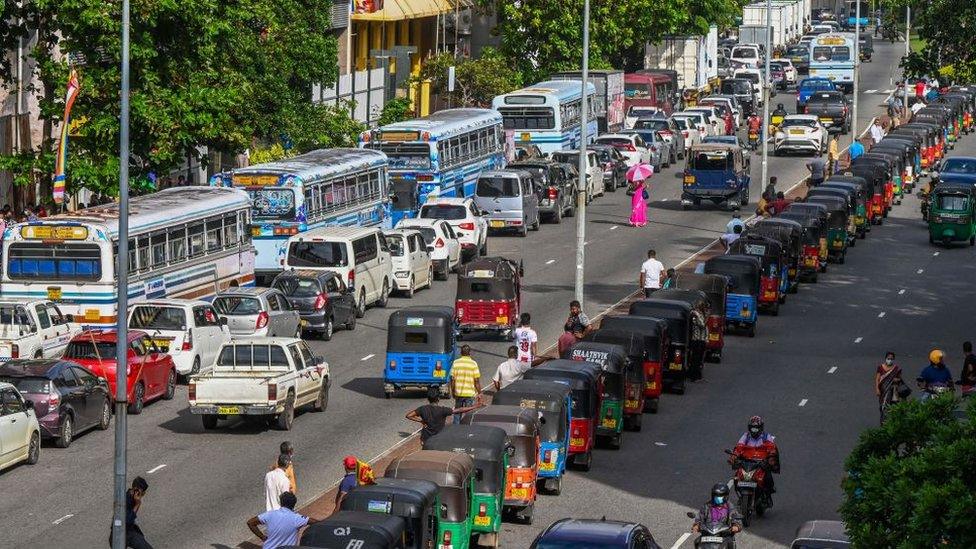
Shortages of fuel have seen enormous lines at petrol stations, while the crisis has also devastated public transport services.
Adults have been told to work from home, and schools have closed this week, due to the fuel crisis, with millions of children unable to take their exams due to a shortage of paper.
Why is there an economic crisis in Sri Lanka?
BBC News South Asia correspondent Rajini Vaidyanathan has more. (from May 2022)
There are many reasons why Sri Lanka is struggling.
Sri Lanka usually makes a lot of money from tourism but very few people have been travelling to the country over the last two years because of the Covid pandemic.
Another way Sri Lanka makes money is through farming - growing tea, rice and other foods.
But a sudden ban on pesticides (chemicals that kill insects which eat crops) has meant farmers aren't growing enough healthy crops to sell around the world - or in Sri Lanka.
This is causing food shortages in the country and sending prices higher. It also means money that is normally made from selling these crops to other countries is being lost.
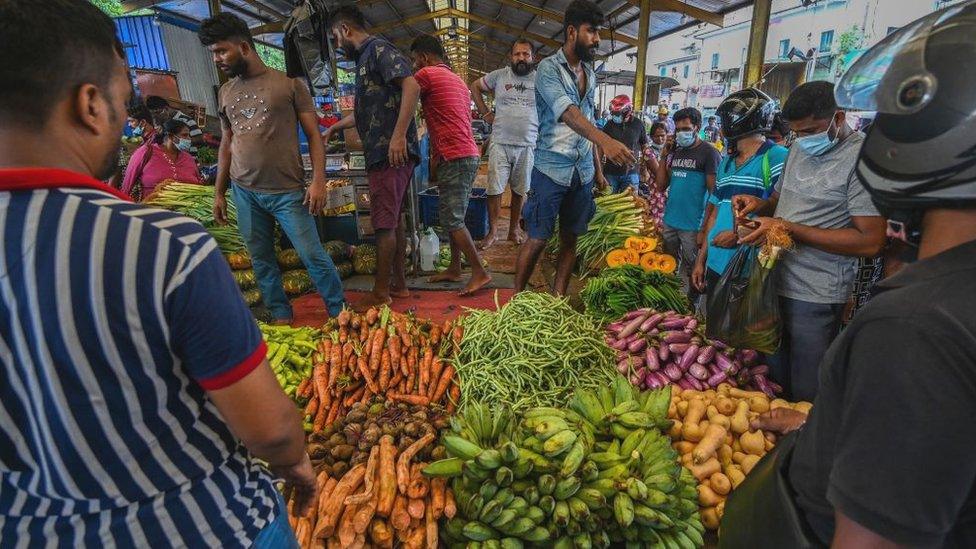
Sri Lanka's problems also come down to the fact that its foreign currency reserves are running out.
This is the amount of gold or money in foreign currencies - for example, British pounds or US dollars - that a country has in the bank at a particular time to help them pay for things they get from abroad.
It means Sri Lanka cannot currently afford to pay for basic foods and fuel, which it buys and imports from other countries.
This has led to shortages, very high prices and power cuts for several hours a day.
Many experts say the economic crisis has not been dealt with by Sri Lanka's various governments over the last few decades, saying it failed to find new ways of making money.
Instead of dealing with the issues, government's including Mr Rajapaksa's continued to borrow money from countries like China, leaving Sri Lanka with billions of dollars of debt to pay back.
- Published19 May 2022
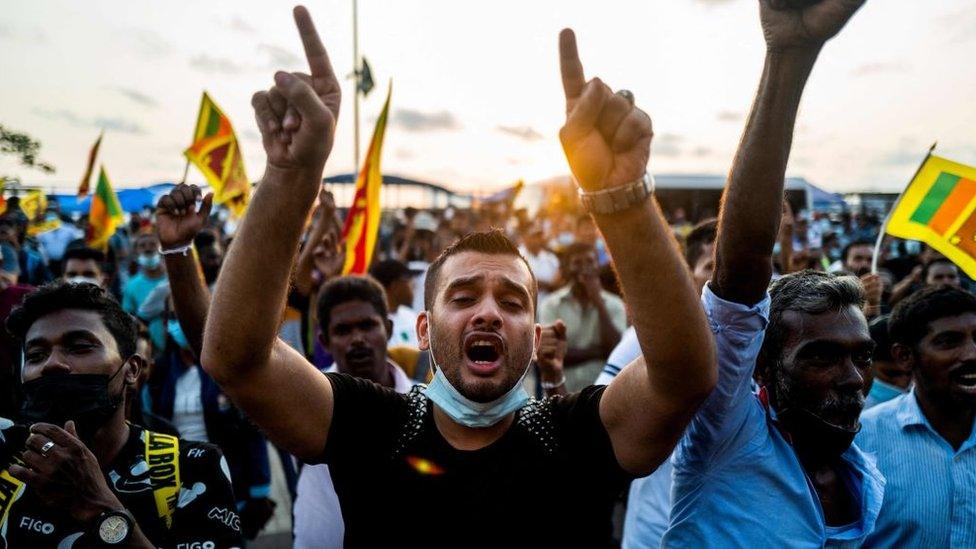
- Published22 March 2022
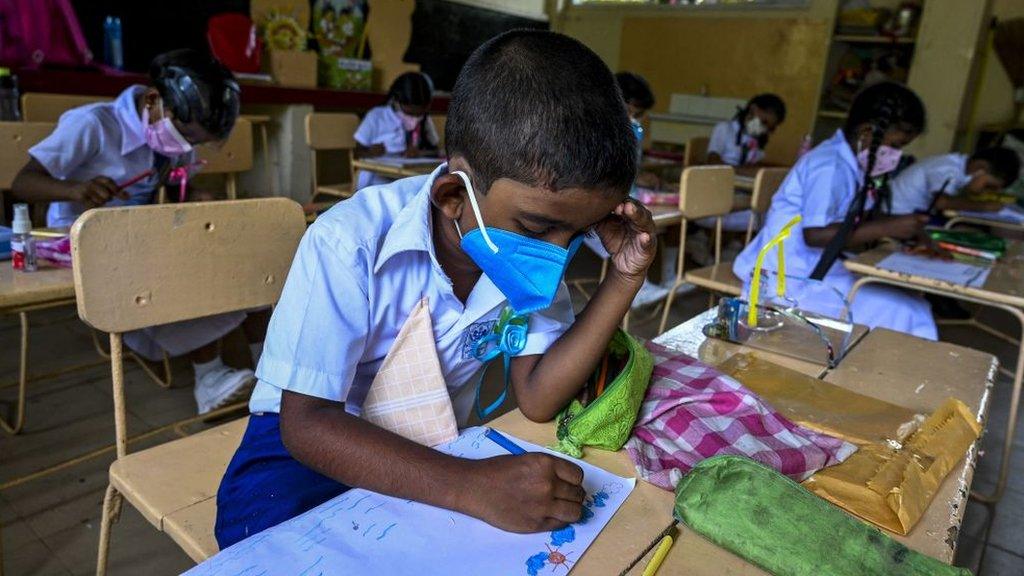
- Published12 April 2022
